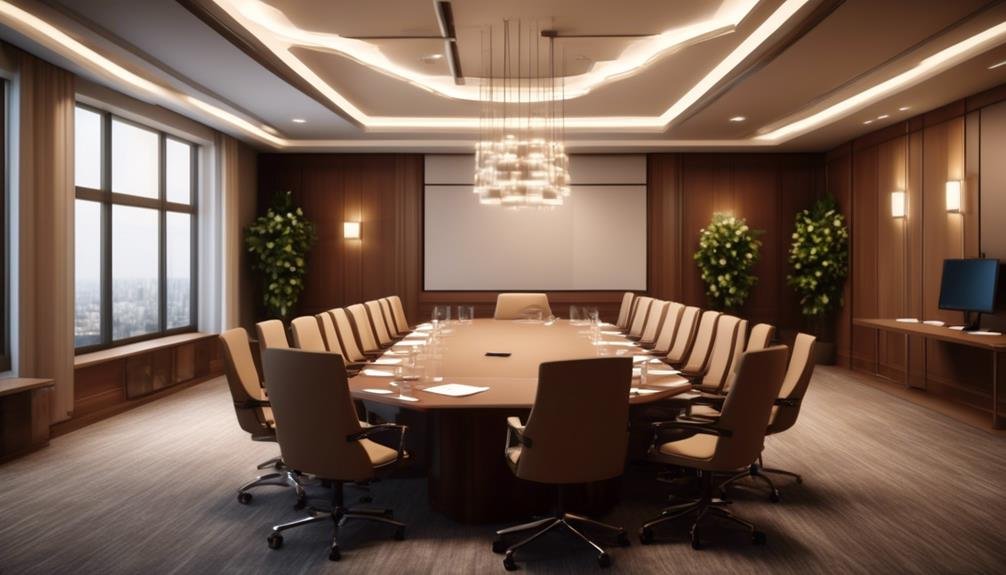Event Planning Skills for Hospitality Professionals
You might think that event planning skills are only necessary for event organizers, but as a hospitality professional, mastering these skills is essential for your career growth. Understanding the ins and outs of event planning can significantly enhance your ability to provide exceptional service and experiences for your guests.
From budgeting and financial management to crisis management and problem-solving, honing these skills can set you apart in a competitive industry.
So, how can you develop and leverage these event planning skills to elevate your career in hospitality?
Key Takeaways
- Active listening and insightful questioning are crucial for understanding client needs.
- Tailoring the event to the client's preferences ensures a personalized experience.
- Budgeting and financial management skills are essential for estimating expenses and negotiating deals.
- Effective vendor and venue coordination is necessary for aligning elements with the client's vision.
Understanding Client Needs
Understanding your client's needs is essential for creating successful and memorable events as a hospitality professional. Client communication is the cornerstone of this process. It involves active listening, asking insightful questions, and understanding the client's vision. To provide personalized experiences, you must delve deep into the specifics of what your client desires.
This could mean understanding their cultural background, favorite colors, or even their preferred choice of music. It's about going beyond the surface and truly understanding what'll make the event special for them.
When communicating with clients, it's crucial to be organized and detail-oriented. Take note of their preferences, priorities, and any special requests they may have. This information will allow you to tailor the event to their liking, ensuring a personalized experience that resonates with them.
Creativity plays a significant role here; it's about taking the client's needs and transforming them into a unique and unforgettable event. Remember, the key to success lies in the ability to truly understand and communicate with your clients to create those personalized experiences they'll cherish.
Budgeting and Financial Management
To successfully execute the personalized experiences for your clients, it's essential to integrate their vision while effectively managing the budget and finances for the event. Budget forecasting and expenditure tracking are crucial components of successful event planning. By carefully analyzing the financial aspects of your event, you can ensure that every detail aligns with your client's vision while staying within budget.
| Budget Forecasting | Expenditure Tracking |
|---|---|
| – Estimate the overall budget for the event, considering all potential expenses such as venue, catering, entertainment, and decorations. | – Keep detailed records of all expenses related to the event, including receipts and invoices. |
| – Identify potential areas where costs may exceed the budget and develop contingency plans. | – Regularly update and review the expenditure tracking to ensure that costs are in line with the budget. |
| – Collaborate with vendors and suppliers to negotiate prices and secure the best possible deals. | – Use budget tracking tools or software to monitor expenses and identify any discrepancies. |
Vendor and Venue Coordination

When coordinating vendors and venues for an event, you meticulously align each element with the client's vision, ensuring a seamless and unforgettable experience. Vendor communication is crucial, as it involves conveying the client's needs clearly and ensuring that each vendor understands their role in bringing the event to life. Site selection plays a pivotal role in creating the right ambiance, and your attention to detail ensures that the chosen venues align with the event's theme and logistical requirements.
Logistics coordination is a multifaceted task that demands your organizational prowess. Coordinating with vendors to ensure timely delivery and setup of equipment, decor, and catering is essential for the smooth running of the event. Your ability to negotiate with suppliers to secure the best possible deals while maintaining quality standards is a testament to your skill in supplier negotiation.
Furthermore, your creative flair comes into play as you transform venues into immersive event spaces that captivate attendees. Every aspect, from the layout of the space to the ambiance created through decor and lighting, reflects your dedication to creating unforgettable experiences. Your meticulous approach to vendor and venue coordination ensures that every event is executed flawlessly, leaving a lasting impression on clients and attendees alike.
Event Marketing and Promotion
With a strategic blend of creativity and data-driven insights, your event marketing and promotion efforts will orchestrate an immersive and compelling narrative that captivates your target audience from the outset. To ensure the success of your event, consider the following strategies:
- Social Media: Leverage various social media platforms to create buzz and engage with your audience before, during, and after the event. Use visually appealing content and interactive elements to build anticipation and encourage participation.
- Influencer Partnerships: Collaborate with influencers or industry experts to amplify your event's reach and credibility. Their endorsement and promotion can significantly impact your event's success.
- Email Campaigns: Develop targeted and personalized email campaigns to keep your audience informed about event details, updates, and special offers. Effective email communication can enhance attendee engagement and drive ticket sales.
- Networking Events: Host pre-event networking opportunities to connect with potential attendees, sponsors, and partners. Building relationships in person can create a memorable impression and boost event attendance.
- Targeted Advertising: Utilize targeted advertising on digital platforms to reach specific demographics and interest groups. This approach ensures that your event promotions are reaching the most relevant audience segments.
Crisis Management and Problem-Solving

Amidst the meticulous planning and execution of event marketing and promotion strategies, adept crisis management and problem-solving skills become pivotal for hospitality professionals to navigate unforeseen challenges and ensure the success of their events.
Crisis communication is a critical component of effective crisis management. It involves the timely and transparent dissemination of information to stakeholders, including event attendees, staff, and media, to maintain trust and manage the situation.
Proactive problem-solving is equally essential, requiring quick thinking and resourcefulness to address unexpected issues that may arise during an event. This involves the ability to assess the situation, identify potential solutions, and make timely decisions to mitigate the impact of the crisis.
By developing these skills, hospitality professionals can effectively handle unforeseen challenges, minimize disruptions, and maintain the overall success of their events.
Embracing a proactive approach to crisis management and problem-solving enables professionals to demonstrate resilience, adaptability, and leadership, enhancing their reputation and building trust with clients and stakeholders.
Conclusion
You've now gained valuable event planning skills to excel in the hospitality industry.
For example, imagine successfully coordinating a high-profile wedding at a luxurious venue, meeting the client's every need within budget, and flawlessly executing the event from start to finish.
With these skills, you can handle any event with ease and confidence, ensuring a memorable experience for your clients and guests.
Get ready to impress and thrive in your hospitality career!


